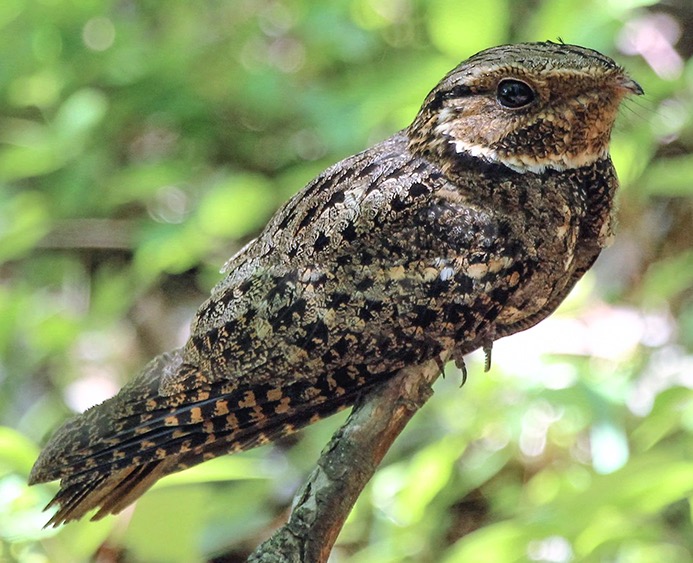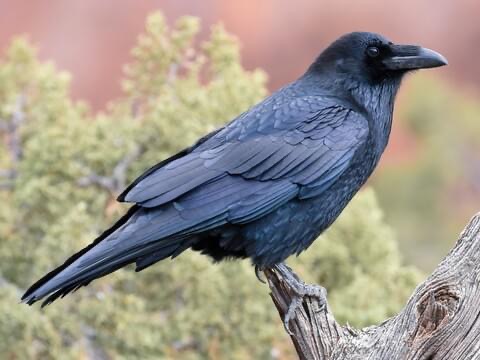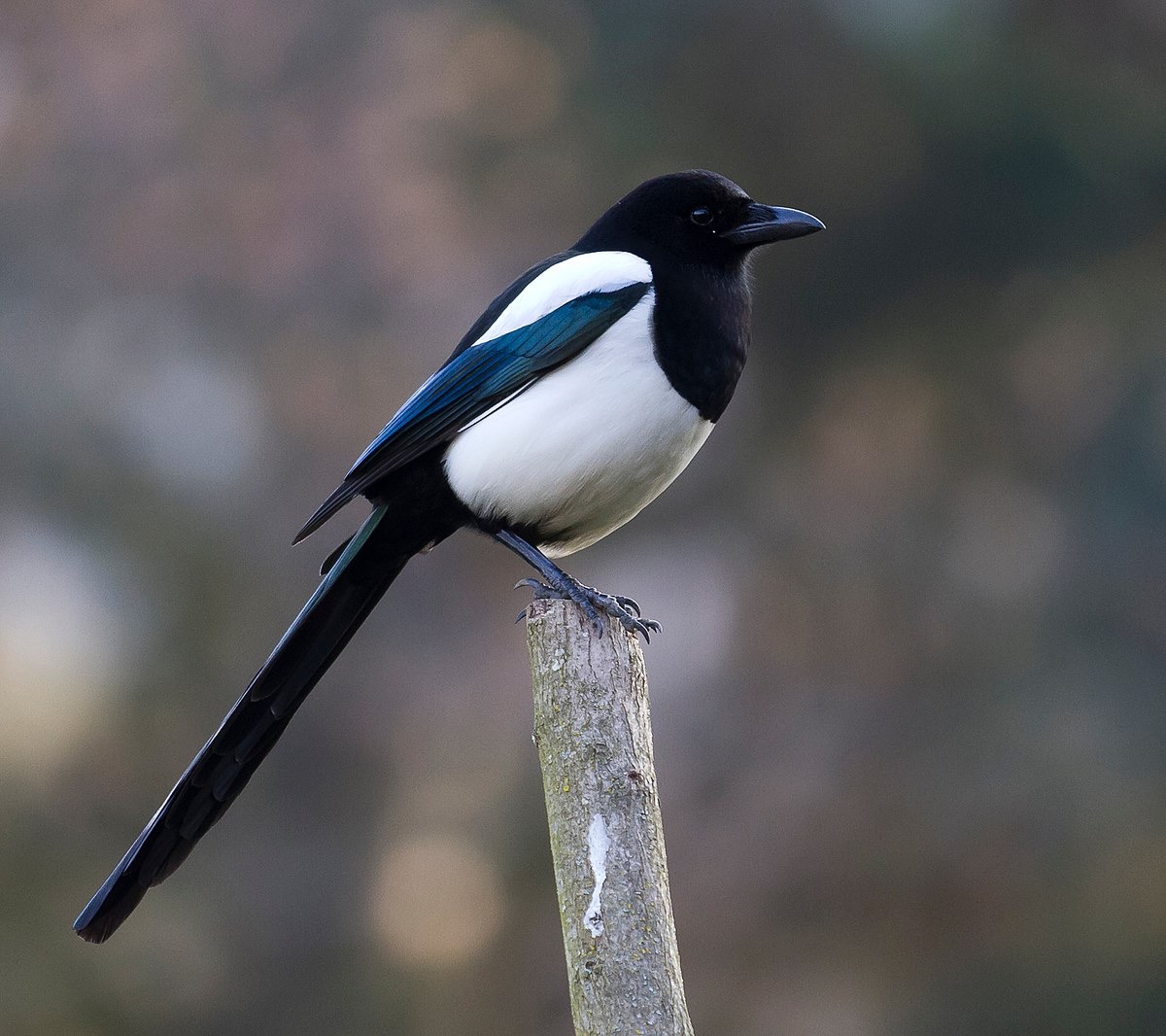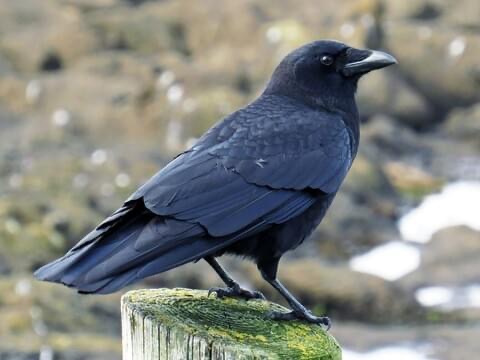Birds that Symbolise Evil
Do they forecast death, bad luck, or sorrow? Can someone close to you die by its cry? Some birds have looped people into their web of mythology. A few infamous birds are at the heart of this bafflement and misdirection.
Living for over 150 million years, birds first looked like little dinosaurs. And they signified a range of feelings in the hearts of people. Along with freedom, they symbolized fear. There are birds known to bring evil on the earth and above.
Today you will learn about birds that signify evil and why they are believed to do so.
Whippoorwill
- Scientific name: Antrostomus vociferus
- Range: Southeastern Canada to the USA and throughout Mexico
- Omen: Death and tragedy
Whippoorwills are seen as a carrier of impending death and tragedy.
The high-pitched cry of the bird sounds like 'whip poor will.' American folklore states that hearing the birds cry near your home will occur tragedy in the future. Or worse, impending death.
What can be scarier than death, right? And imagine the Whippoorwill crying at its maximum of 1088 calls in a row.
One legend conveys that the Whippoorwills can sense a man's soul departs and capture it with them. But the only things whips capture are a few insects.
Aging wives worked until dawn to whipstitch the tattered fabric of whippoorwill mythology. Utterly believable but rarely proven are tales associated with the bird. Some of which scare people and force them to rethink these myths.
Native American folklore believed the singing of these birds was a death omen. Whippoorwills calling near a house were an omen of bad luck or death.
The Omaha tribe of Native America would hear a whippoorwill's calling but were advised to decline it. And the one who did would die. The Colorado Utes considered that the Whippoorwill was one of the gods of the dark and could transform a frog into the Moon.
It crawls up your spine, the very feeling you have always avoided. One cannot help but wonder how and when it will hit. Death. That's what scares most of us.
My Heading
- Scientific name: Buteo buteo
- Range: Throughout America, from Southern Canada to Cape Horn
- Omen: Bad luck and danger
The Buzzards are often known to be the messengers of God in diverse cultures. Messages from the above that many may not be waiting for.
There is a story behind every bird's superstition if the legend can have it. Man witnesses the Buzzard as a harbinger of ill fortune, a bird worthy of suspicion, pessimism, and phobias.
But superstitions from central Florida consider a vulture flying over your house as a sign of good luck. Or a messenger conveying that good news is on its way to you.
But one good omen amongst many evil ones does not take the bird off the cross. Some even say that if the bird flies more than once overhead, it brings death.
From the family of vultures, the bird flying above brings bad luck or even danger. Many cultures worldwide have different interpretations of the omens connected with the Buzzard.
But one thing every culture may agree on is that seeing a buzzard fly above you is a dark omen. Some may consider it a warning, threat, or sign of approaching bad luck.
And some might see a bird and move on. And bad luck goes with the bird itself.
My Heading
- Scientific name: Corvus corax
- Range: Almost everywhere on the globe
- Omen: Death and doom
Ravens are big stunning birds with lustrous coats and silky feathers. Since old times they have been a part of diverse religions, cultures, traditions, and myths.
Although not always seen as favorable, they contain certain power and energy, imaging them as one of the most feared birds in history.
In Greek mythology, the Ravens were seen as a symbol of bad luck and misfortune after their encounter with God Apollo. One fine day, Apollo sent a raven to spy on his lover Coronis, and the bird saw her unfaithfulness.
The raven has been viewed as a harbinger of bad news and misfortune ever since. The legend says that when the raven narrated the story, he cursed the bird's feathers, the blackout of anger and rage. Ravens also have a strong impression of being an emblem of death and destruction in Celtic mythology.
In an Indian legend, ravens are often described as the ancestors of human beings. In Hindu mythology, Ravens are also the vehicle for God Shani, who controls the fate of humans.
Considering their occult and psychic powers, they are viewed as guides of witches and wizards. And they rarely have an appealing image in the minds of the people.
Many cultures and traditions have assured that Ravens brought sadness, sorrow, danger, and curse to the lives of many.
Magpie
- Scientific name: Pica Pica
- Range: North America, Europe, Africa, Asia, and southeastern Asian islands
- Omen: Death and destruction
Birds of Doom, as the Romans referred to them, are well known for their cries. The belief still holds. The bird's call resembles the words' many sorrows', thus meaning death.
One for sorrow,
Two for mirth,
Three for a funeral,
Four for a birth.
Aside from the well-known One For Sorrow nursery rhyme, magpies have various symbols and meanings in other cultures. Magpies were said to be the only birds that did not comfort Jesus when he was crucified, leading to the popular superstition that they meant no good.
The magpie is a wild bird soaked deep in folklore and superstition. In fact, out of all the birds, the magpie is the one that features in most superstitious stories.
Somewhere in the world, it is believed that merely seeing the bird will bring death to the individual.
They also indicate a forthcoming deception, opportunism, and a powerful illusion. But isn't that what humans display too? Why blame a bird for it?
Black Bird
- Scientific name: Corvus
- Range: worldwide except southern South America
- Omen: Bad luck or death
Blackbirds are well known as harbingers of death for the spirit. The Greeks and Egyptians saw these birds as a symbol of chaos and darkness. The myth is that if a blackbird makes a nest in the house, the person can expect bad luck in the future.
It is believed that some birds, especially a blackbird, carry ill fortune for the man who sees. Mainly, bad luck is seen if someone sees five of them at a time. Moreover, if an individual spots six crows, death might follow him.
The cry of a Blackbird warns of danger ahead.
The Bible does not display Blackbird in a good light. It is said that St. Benedict was drawn by a Blackbird who was the Devil in guise.
According to many fables, the sight of a Blackbird might be seen as good omen or bad news. The dark wings of the bird connect it with the otherworld mysteries, indicating that it flies as a messenger of death.
In Greek folklore, Apollo sent out the Blackbird to the land of King Midas as he lacked gratitude toward God in his heart. A curse followed the bird. Everything he touched turned into gold. The bird has been associated with suffering ever since.
And so does one's past. Letting go of it and the superstition might lighten and brighten your life. And it comes without an extra charge. It's free, but are you?
Crow
- Scientific name: Corvus
- Range: worldwide except southern South America
- Omen: Bad luck or death
Do you know a group of crows is known as murder? You read that right. People perceive this bird as a symbol of evil, death, and danger.
In distant folklore, it is believed that someone is about to die when crows perch on your fence. The crows arrive to escort your soul.
Stories from Hindu mythology state that if a crow flies with a grain of food, it signifies famine. It is also a sign of damage in agriculture. And the one who catches a glimpse of such a crow, there is some crisis soon.
The color black indicates darkness and danger. So, it is normal for an individual to associate a crow with misfortune.
But come on, would you blame the overcrowding of crows every time your lucky draw didn't turn out to be as lucky as you imagined?
Owl
- Scientific name: Strigiformes
- Range: on every continent except Antarctica
- Omen: Evil or Satan
Despite being a constant symbol of wisdom and solitude, Owls are also the bearers of bad omens. There is surmountable superstition from folktales around the world linking them to bad luck.
The word is that seeing an owl outside your window during the day is a sign of impending death or bad luck. The ancient Greeks and Egyptians dismissed the notion of bad luck being associated with the time they are seen. They believed that one glance at it makes things happen. Bad things.
From horror movies to associations with shamanism, many superstitions stem from owls. Superstitions might seem like simple fairy tales, but there's much more to the story.
In many civilizations, myths are so widespread that they are viewed as facts and passed to the next generation. Their silent character and preying behavior often associate them with death.
Hearing an owl's hoot may indicate a death. An owl perching on someone's roof is believed to forecast the death of someone living there.
In another Greek mythology, a god penalizes one of the demons by transforming him into a screech owl. The demon continues to live as a screech owl, acting as an evil spiritual force on earth.
So if you see one, it might be a sign. Or just an owl. Depends on how you look at it.
My Heading
- Scientific name: Gyps indicus
- Range: across the world except for Australasia and Antarctica
- Omen: Death
Believed to be a personification of God Anubis, who presided over mummification in Egyptian culture, Vultures are associated with death.
The legend says that a vulture flying overhead signifies death hovering over.
Although seeing them is considered bad luck since death and the vulture go hand in hand, they are associated with rebirth and change.
However, the legend says that the vulture is unclean and associated with a dishonorable death and improper burial. Therefore, vultures have a connection with spiritual filthiness.
For example, David and Goliath both intimidated one another by exposing their corpses to the earth, letting vultures feed upon them after death.
So the next time you see a vulture over you, you may want to step inside. It was breaking the curse. Technically.
Conclusion
Birds, in general, have forever been noticed as omens, conveying the Universe's message to us. Indeed, our predecessors across various cultures looked to these birds to get insights into their fortunes.
But where it is good, there resides evil too. However, we can never be sure if any of this is true or merely a set of coincidences happening over time. Nature has its way of things, and no science can decipher what it has to say.
Moreover, it is easier for humans to find someone to shift the blame or bad luck on somebody else and ignore the underlying issues. Even if it is as little as blaming a free bird for doing the only thing, it is born to do. Fly.
While some of it holds substance, is it good to start the blame game? Sometimes it helps to take up the responsibility for actions and learn. Move on. Fall. Learn. And rise.
And if you are lucky, you might be able to fly too.








Post a comment